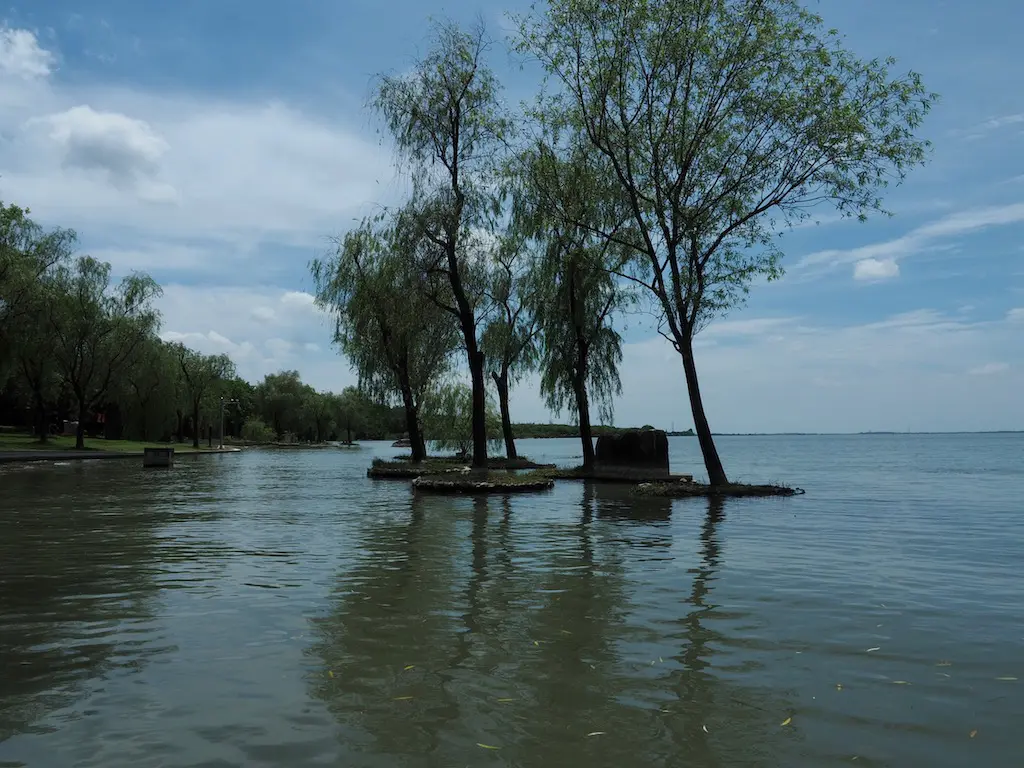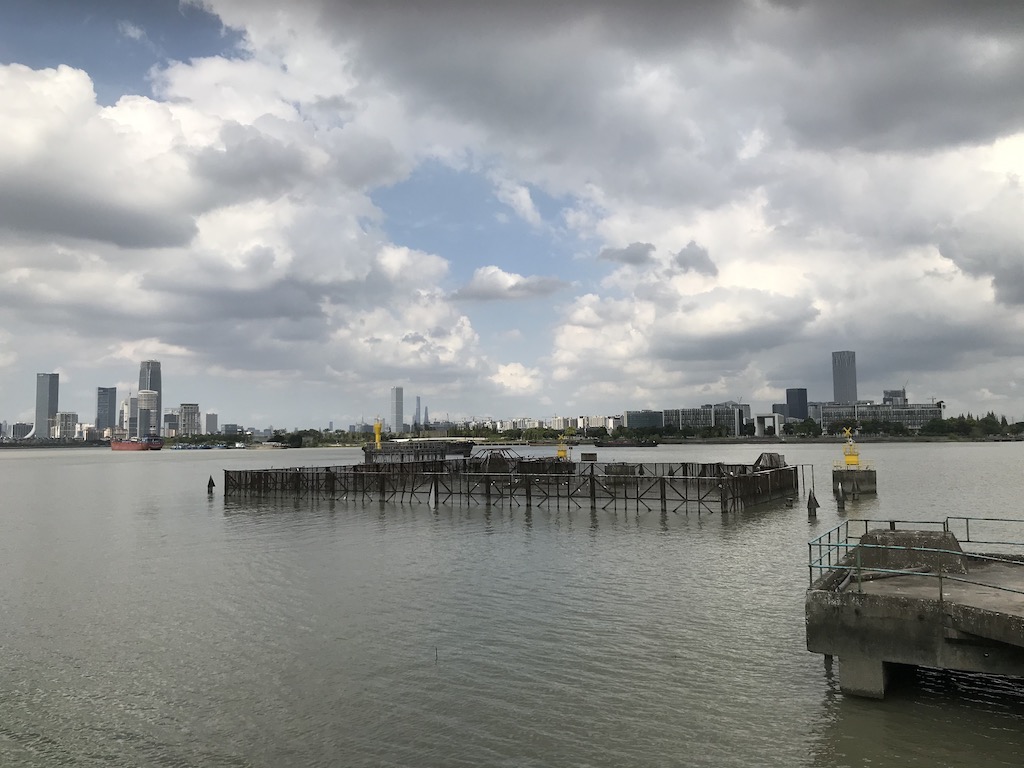There’s water everywhere, but in China, it isn’t safe to drink. It rained all day yesterday. Even though I had an umbrella with me, my shoes are still soggy from trudging through a downpour. This isn’t even the rainy season. Sometimes it rains non-stop for two weeks straight. Everyone’s walls have water damage and sometimes mold.
Shanghai is a very wet city. It feels tragically ironic that you can’t drink the water in China.
Why Isn’t the Water in China Safe to Drink?
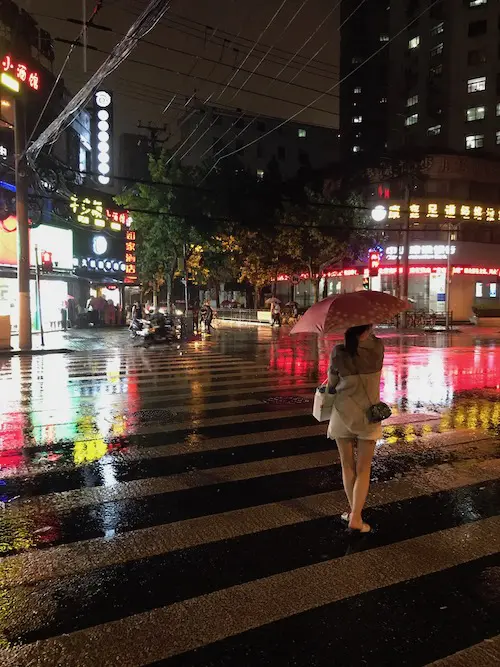
The tap water in China is fine if you just want to take a shower or brush your teeth. It is not safe to drink. Supposedly it is in Shenzhen, but I’ve personally never drank any water there.
China, as you may know, is struggling with a lot of pollution issues due to breakneck industrialization. The tap water has all sorts of weird-sounding chemicals and metals. It’s maybe okay for a short time, but those sorts of things can lead to serious long-term health issues.
Aside from the pollution, and that’s a big aside, there are also viruses and bacteria. Often times sewage treatment isn’t the best, especially in rural parts of China. In big cities, like Shanghai, the problem lies with the buildings themselves. The pipes are old, and all sorts of diarrhea inducing bacteria and viruses are able work their ways in to the plumbing.
How Do People Drink Water in China?
Unsafe drinking water has led to one of the more interesting Chinese cultural quirks. People here only drink hot water. Even in the blisteringly hot summers. Even after exercising or doing hard labor. Kettles are standard in every hotel room. Everyone, from construction workers to politicians, carries around little thermoses of hot water.
According to traditional Chinese medicine, hot water is supposed to balance out cold and humidity. It also increases metabolism, promotes blood circulation and releases toxins. According to traditional Chinese medicine, you also aren’t supposed to get your hair wet.
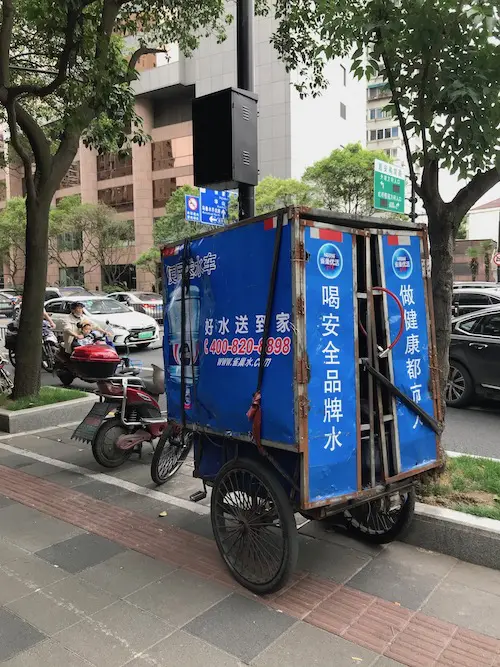
My science-addled Western brain still hasn’t been able to fully accept traditional Chinese medicine, but I do know that boiling water for one minute kills almost any virus or bacteria that may be hiding. I think this is the real reason the Chinese heat their water. In the 1950s, the government would even deliver boiled water door to door.
Of course, boiling water does nothing for chemicals and pollutants. I tried for a week to install a filter on the faucet in our kitchen. Eventually, I gave up and bought a well-reviewed pitcher style carbon filter that will supposedly get rid of any pollutants. I still don’t trust it enough to drink straight, but it works for cooking and making tea.
Most people, unfortunately, are stuck with bottled water. Guys on motorized bicycles crisscross the city delivering big blue plastic water jugs to businesses and some homes. Some apartment complexes have public water dispensers, where you can fill up a 4-liter bottle for 1 yuan.
Otherwise, every convenience store is full of bottled water options. The plastic bottles get recycled in theory, but still likely contribute to the vicious cycle of water pollution. The Chinese still heat up their bottled water before drinking it.
I Told You Not to Flush That!
Remember those old pipes I told you about? Well, China’s plumbing issues don’t just affect the drinking water. It also affects how we poop.
Here in China, we don’t flush our toilet paper. The only thing that’s safe to go in the toilet is whatever comes out of the human body. After wiping, you put the toilet paper in to a little trash can next to the toilet.
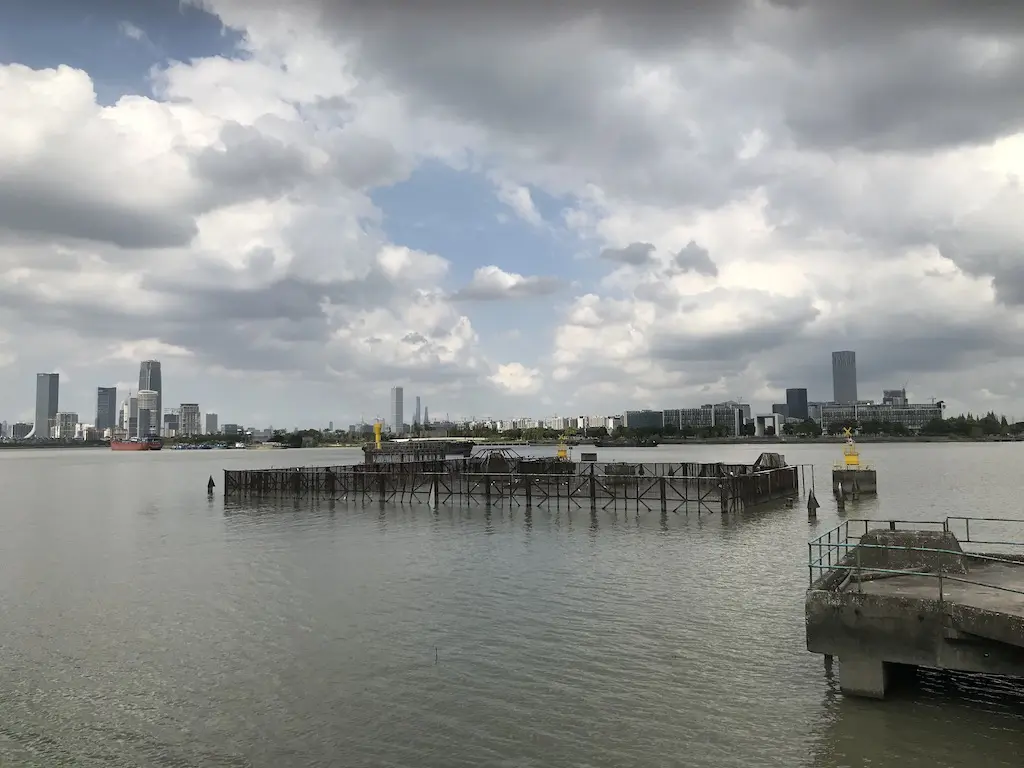
At first, I didn’t believe this. I spent a long time just flushing my toilet paper, because I’m an American and goddamn it, I should be able to flush whatever the hell I want to because freedom.
But then the toilet backed up.
It started with a few annoying plunges every week or so. Then, we had to plunge more and more. I’ll spare you the details, but the whole situation led to the landlord having to come in and replace the entire drainage pipe for our apartment.
So, we got a shit bucket. Now we do like most Chinese people and put our toilet paper in the trash. I’ll be honest, it was a little weird at first carrying a little bag full of used toilet paper down to the trash bins. But you would be surprised how easy it is to get used to things.
It’s a shame that bidets haven’t caught on in China. Or, as they do in parts of South East Asia, having a little hose connected to the toilet that you use to rinse when you’re done. It’s like a focused bidet, and it made every poop in Cambodia feel extremely luxurious.
Water is Life
Problems with plumbing and drinking water aren’t exclusive to China. Plenty of American tourists have learned how to say “sin hielo” while vacationing in Mexico. The lack of clean drinking water is a huge concern all over the developing world.
There are all sorts of alarming and depressing statistics about the state of the world’s water and sanitation available from the UN:
https://www.un.org/sustainabledevelopment/wp-content/uploads/2016/08/6_Why-It-Matters-2020.pdf
https://wateractiondecade.org/
To be fair, the Chinese government has been doing a lot to try and clean up the country’s notorious pollution recently. Unfortunately, as it always goes with these sorts of things, it isn’t quite enough. There are still millions of people without clean drinking water.
There are certain things that you take for granted living in the United States (or anywhere else in the developed world, I imagine.) But, look what happened in Flint, Michigan. It’s one of those little things you really don’t think about until you don’t have it.
As for me, I’ll keep mostly drinking bottled water here in China and feeling guilty about all the plastic I’m using. At least they recycle here.
And now I cringe a little bit every time some water gets spilled. Having to pay for a bottle every time I’m thirsty has really made me appreciate how valuable clean drinking water really is.
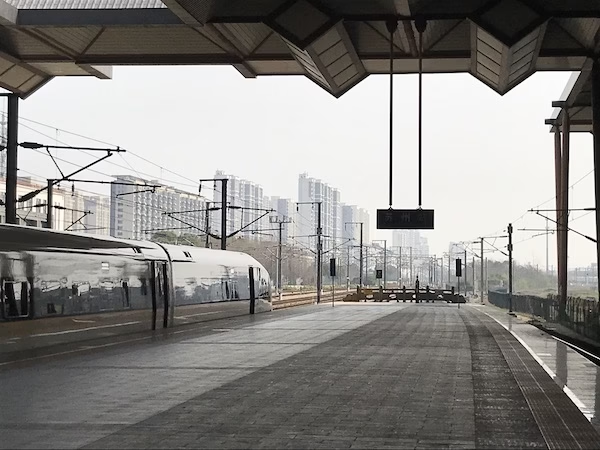
Need Train Tickets in China?
China’s high speed rail network is fast and efficient, but it’s difficult for non-Chinese citizens to get tickets. Fortunately, Trip.com makes buying train tickets as hassle free as traveling through China can possibly be. Click the link below to get your Chinese train tickets. If you buy your train tickets using the link, I’ll receive a small commission and you’ll feel good knowing you’ve helped out an independent blogger.
